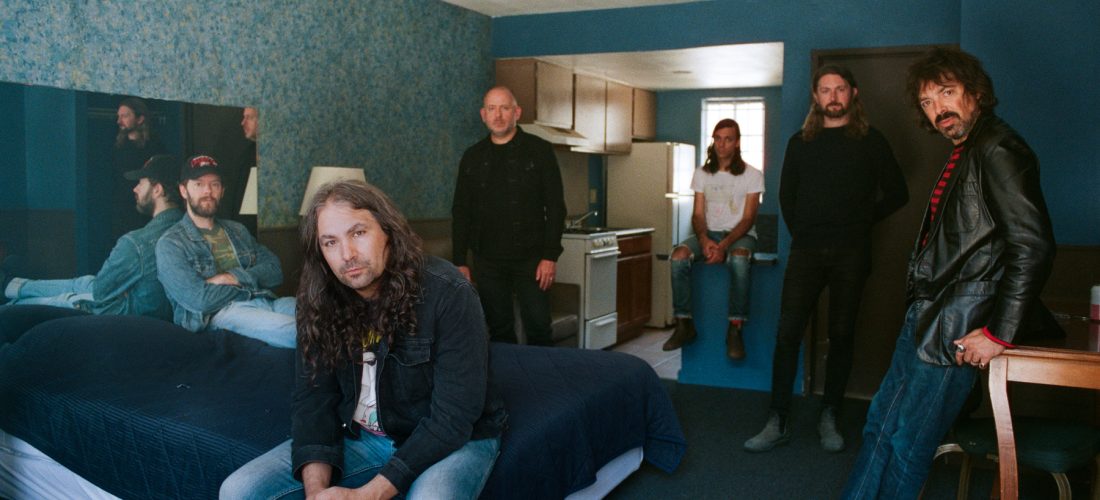The War on Drugs Invent Indie Yacht Rock
Adam Granduciel, the main man behind the War on Drugs, is a decent songwriter, a passable singer, and a good musician. But what he and the band really excel at is a kind of indie-rock interior design: politely anthemic middlebrow guitar romanticism that drifts and builds gorgeously, luxuriating in cozy abstraction and mutable emotion, expansive yet homey, with every inch of space giving off a warm, clean, tastefully lived-in feel. It’s a vibe that’s worked well for the War on Drugs, whose first LP in more than four years has been one of 2021’s most anticipated rock releases.
Granduciel’s holy trinity is Dylan, Petty, and Springsteen — this is a guy who named his first son Bruce. On I Don’t Live Here Anymore, he really goes all in on his retro-rock fantasy, with sparkling synths and booming drums just as prominent as autumnal jangle. In his nostalgic utopia, the commercial categories that defined the Reagan years have eroded into a mass of vague, happy memory, so the neon-tinted elegy “Change” suggests Don Henley’s “The Boys of Summer” with R.E.M.’s Peter Buck on guitar and Bruce Hornsby on piano. “I Don’t Wanna Wait” is even more enticing, evoking Phil Collins’ “In the Air Tonight” colored with ambient drones, as if Brian Eno had produced it, before morphing into something like Bob Dylan, if he’d tried to write a song that ripped off John Waite or Lou Gramm. And if you want to hear what it’d sound like if Bryan Adams had ever taken a shot at Springsteen-style working-class fatalism, “Old Skin” has you covered. The results come very close to arriving at a kind of indie yacht-rock — smooth but sad, rustic and ruffled, yet chill and pristine. Call it pontoon-rock.
As its title suggests, I Don’t Live Here Anymore is a record that often dwells on moving on (and out) after the end of a relationship. Granduciel lays out that theme most majestically on the title track. The music suggests he might have been thinking of Kim Carnes’ “Bette Davis Eyes,” or perhaps Def Leppard’s “Hysteria,” and the lyrics are a pastiche of Dylan quotes; Granduciel sings about being a “creature void of form” and dancing “to Desolation Row.” Lyrically, the album’s sentiments of change and loss, “running and returning,” and loose romantic ends doomed to remain untied are very Blood on the Tracks — that is, if Dylan had released that masterpiece in 1985, instead of 1975, with Dave Stewart or Mutt Lange producing.
As a songwriter, Granduciel can’t quite fill shoes that big. But when he steps aside and War on Drugs stretch out — piling on acoustic filigree and crisp leads on “Harmonia’s Dream,” for instance, or zoning out heroically during the anxiety-shedding folk rock of “Occasional Rain” — they create a rare world of bliss that’s a great place to kill some time.
